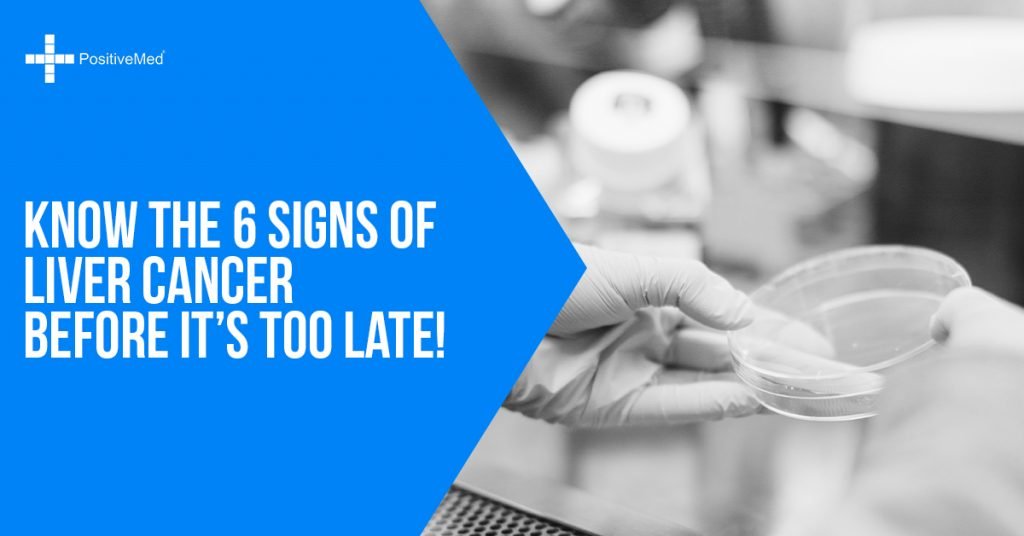It is best to treat liver cancer early, but it’s a sneaky disease. It often lies undetected until it has progressed to an advanced, harder to treat, stage. By paying careful attention to your body, you may notice symptoms that will alert you to a liver problem. Knowing these signs and the risk factors that are associated with liver cancer may help you protect yourself against advanced liver cancer.

Your appetite is waning.
Patients with liver cancer may find themselves filling up unusually quickly. They are unable to eat as much in one sitting as they used to, and they do not have as much interest in food.
You are experiencing stomach troubles.
Liver cancer can cause pain in the abdomen. It might be especially pronounced in the upper right region because that is where your liver is. Liver cancer can upset your stomach and cause nausea and vomiting, or it can cause your stomach area to become swollen.
Your weight is dropping.
Weight loss is often a good thing, but when you’re losing pounds without even trying, that can be a concern. If you are dropping a noticeable amount of weight without making a change in your diet or lifestyle, it could be a side effect of liver cancer.
RELATED ARTICLE: 12 Body Signals About Liver Damage
Your skin and eyes look yellow.
The liver is supposed to break down old red blood cells. When there is a problem with the liver, it cannot do this job effectively. Chemicals start to build up in your body and give you a yellow appearance. This is called jaundice. Both your skin and the whites of your eyes may have the yellow tint.
Your stools are discolored.
Chalky, white stools indicate a bile issue. Bile is a substance produced by the liver, and it gives stools their normal color. Colorless stools indicate that the liver isn’t producing bile or that the bile is unable to leave the liver.
RELATED ARTICLE: This Root Kills 98% of Cancerous Cells in Only 2 Days
You are experiencing hormone-related issues.
Liver tumors can produce hormones that affect other symptoms in the body. These can include high cholesterol, high red blood cell counts, high blood calcium and low blood sugar. The hormones can also have effects on male or female reproductive organs.
If you experience some of these liver cancer symptoms, you should see a doctor. You should especially make an appointment if you are at increased risk of liver cancer.
Risk factors include:
Heavy drinking:
If you currently drink excessive amounts of alcohol or used to drink too much, this could damage your liver. The damage can lead to abnormal cell growth.
Hepatitis infection:
People who have had hepatitis B or C are more likely to develop liver cancer. Those who have not been vaccinated for hepatitis B are also at an increased risk.
Obesity:
Extremely high weight is associated with non-alcoholic fatty liver disease. This disorder can increase your chances of developing liver cancer.
Diabetes:
Most people with type 2 diabetes also have non-alcoholic fatty liver disease, a serious cancer precursor.
Aflatoxins:
Exposure to these molds, which can grow on corn and peanuts, may cause problems in the liver.
Your doctor may run tests to determine whether you have cancer or another problem with your liver. A blood test can detect issues with liver function. Your doctor can gain information with various imaging technologies. This can include magnetic resonance imaging and ultrasounds. The doctor may do a bioposy. In this procedure, he or she removes liver tissue in order to get a close-up look at the cells under a microscope. If your doctor does detect cancer, tests can help him or her know how advanced it is and how to approach treatment.
Getting tested for liver cancer may sound scary, but if you may be sick, it must be done. Early detection is vital to the successful treatment of this cancer. If you are experiencing subtle symptoms or have risk factors for this disease, make an appointment with a doctor.






